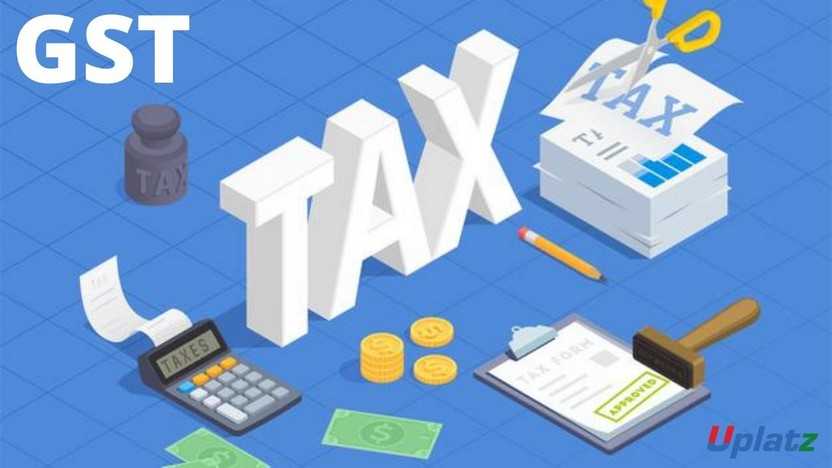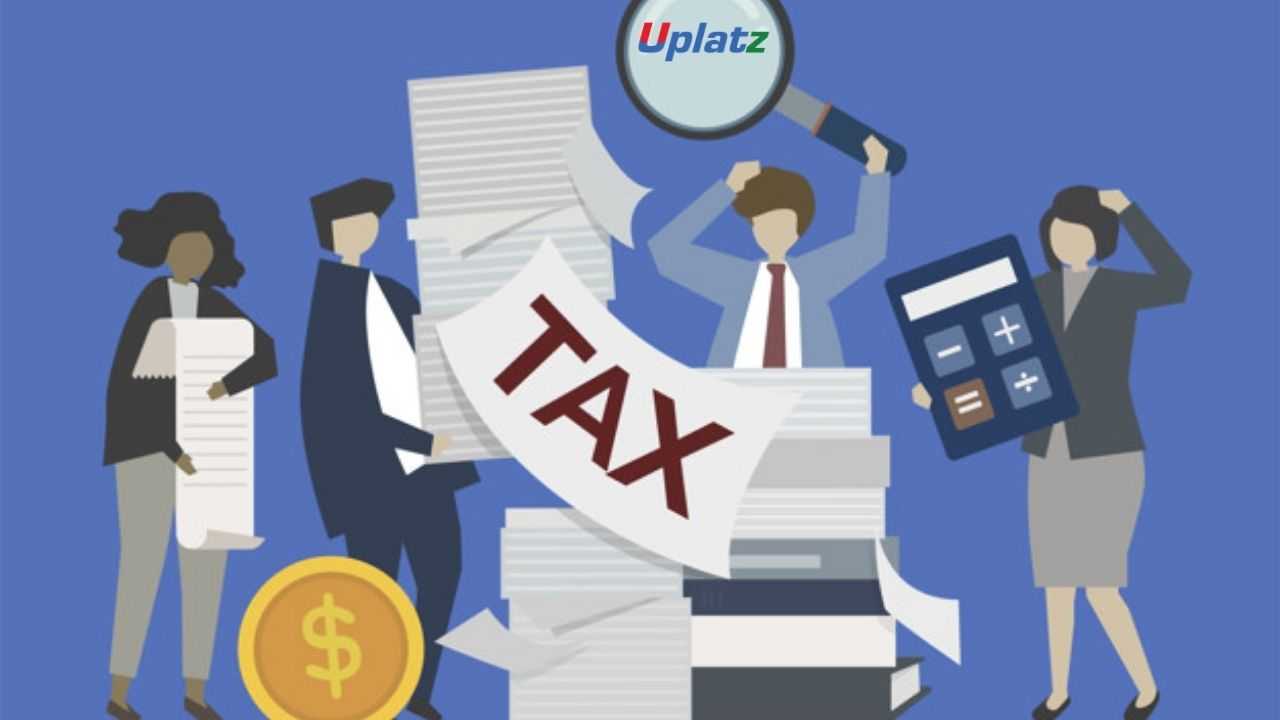International Accounting Standards (AS)
Learn about the Financial Accounting Standards Board sets the standards for non-profit and commercial entities.Preview International Accounting Standards (AS) course
View Course Curriculum Price Match Guarantee Full Lifetime Access Access on any Device Technical Support Secure Checkout Course Completion Certificate 75% Started a new career
BUY THIS COURSE (
75% Started a new career
BUY THIS COURSE (GBP 12 GBP 29 )-
 86% Got a pay increase and promotion
86% Got a pay increase and promotion
Students also bought -
-

- Income Tax (India)
- 160 Hours
- GBP 12
- 302 Learners
-

- GST (Goods and Services Tax)
- 135 Hours
- GBP 12
- 2763 Learners
-

- Tax Deducted at Source (TDS) - Income Tax India
- 3 Hours
- GBP 29
- 92 Learners

International Accounting Standards (AS) are a set of written statements and principles that define accounting practices. They are issued by authorised institutions of the accounting profession across the world.
In Canada, there’s the Accounting Standards Board, whereas in the UK the equivalent is the Financial Reporting Council. In the US, the Financial Accounting Standards Board sets the standards for non-profit and commercial entities. The Governmental Accounting Standards Board does the same for governmental accounting in the US.
Besides conformity, these standards also promote financial integrity. As accounting standards are useful in fiscal analysis, they exist across almost all levels of a business.
Today, there are several accounting standards in the world. The significant ones are full-accrual based, cash-based, and tax-based accounting standards. Each of these are referred to as Generally Accepted Accounting Principles.
Importance of Accounting Standards (AS)
Although the responsibility of accounting standards primarily falls to accountants, other personnel in need to understand these standards.
The standards that apply to their professional category such as banking. It’s essential to understand accounting standards as they help organisations operate well and maintain balance in the financial areas of any business.
Another side of the finance industry is the investment section. Investors and analysts need accurate and consistent financial data to make informed decisions. To achieve this, there’s a need to grasp the way accountants deal with activities and report financial data.
Benefits of Accounting Standards
Standards exist to guide accounting practitioners in the application of accounting practices. They form a fundamental limb in the accounting profession. Here are some of the benefits:
1) Promote credibility of financial statements and consequently their reliability
2) Help avoid fraudulent and misleading audits that are a result of inappropriate and varying accounting principles
3) Provide a cogent frame of reference to measure financial performance
4) Help assess managerial accountability and gauge the overall efficiency of the management's administration
Types of Accounting Standards
Accounting standards can be divided based on their subject-matter. Here are the main types of accounting standards.
Disclosure Standards
Disclosure standards refer to the basic systematic set of guidelines for external reporting. These standards entail only a plain but clear-cut disclosure of the assumptions, accounting principles, and methods used in preparing financial statements.
Presentation Standards
These standards outline the accounting information that passes for presentation and the order. This information can include specific financial statements. Relative to disclosure statements, presentation standards have a small degree of restriction on the choice of accounting policies.
Content Standards
As the name suggests, these specify the content to be published. Content standards have three aspects, i.e. disclosure, specific and conceptually.
National & Global Accounting Standards
Although some businesses operate only within the country's border, others have a reach far beyond the borders. For the latter, this has meant adopting international accounting standards. This is where the International Finance Reporting Standards comes in.
This Accounting Standards (AS) course by Uplatz explains all 32 Accounting standards (AS - 1 to AS - 32 including obsolete AS) in detail with practical examples and scenarios.
Course/Topic - International Accounting Standards (AS) - all lectures
-
In this video we will talk about what is Accounting Standards. This video talks the importance of accounting standards and its applicability on level I, level II and level III enterprises. Lastly, we will see the list of accounting standards.
-
In this session we will learn about the about what are accounting policies and specified accounting principles and methods. Further we will talk about the going concern and consistency in accounting standards. Lastly, we will see the considerations in selecting an accounting policy and disclosure in changing accounts policy.
-
In this session we will learn about the objectives of accounting standards, application and scope of AS, valuation of inventories. Further we will see explanation of net realizable value, cost of purchase and categories of conversion cost.
-
In this session we will learn about the introduction of cash flow and what is cash flow. Further we will see about the operating activities, direct method, investing activities and financing activities.
-
In this session we will learn about the conditions and events occurring after the Balance Sheet Date, accounting treatment of contingent losses, accounting treatment of contingent gains. Further the video talks about determination on the amount of contingency, accounting treatment of events, adjusting events and non-adjusting events.
-
In this session we will learn about the prior period items, extraordinary items and certain other specific items. Further in the video we will see about the disclosure requirements such as net profit or loss for the period.
-
In this session we will learn about the construction contracts. Further this video talks about the types of construction contracts such as (i) Fixed Price contract and (ii) Cost-plus contract.
-
This session covers the topic of Revenue recognition such as a revenue from sale of goods, rendering of services, use of business entity resources.
-
In this session we will learn about the principal issues in accounting for the PPE like the recognition of assets, determination of carrying amounts, depreciation charges and impairment losses.
-
In this session we will learn about the Effect of Change in Foreign Exchange Rate. This video explains about the concepts of average rate, closing rate, exchange rate, fair value, foreign currency and foreign exchange.
-
In this session we will learn about the introduction to accounting for Government grants, meaning of Govt grant. Further the video talks about the method of accounting by capital approach and income/revenue approach.
-
In this tutorial we will see about the accounting for investments and its applicability. The video further talks into the current investment and the long term investment, investment property, fair value and market value.
-
In this session you will learn about the accounting for amalgamation and its overview. Further in this tutorial you will learn about amalgamation in the nature of merger, pooling of interest, amalgamation in the nature of purchases.
-
In this session we will cover the topic of Employee Benefits and its scope. We will also see about the defined contribution plans and defined benefit plans, other long term employee benefits and termination benefits.
-
In this session we will learn about the employee benefits other than defined benefit plans and termination benefits.
-
In this session we will see a detailed explanation of borrowing cost concept. This video talks about the types of borrowing cost, commencement of capitalization and its suspension and cessation.
-
In this session we will see the basic topics of segment reporting. This video talks about the objective of segment reporting and its scope and the definitions under segment reporting.
-
In this session we will learn about identifying the primary and secondary reporting format.
-
In this session we will learn about the related party disclosures and the need for the same. Further we will see its effects on financial position and operating results and recording of all possible transactions.
-
In this session we will learn about the objectives of lease and its scope. Further this video talks about the definitions of concepts in lease, like finance lease, non-cancellable lease, inception of the lease.
-
In this session we will learn about the disclosure in case of finance lease and operating leases.
-
In this session we will learn about the about the earnings per share, its applicability and objectives. Further we will learn about the Equity share, preference share and financial instrument, potential equity share and share warrants or options.
-
In this session we will learn about the consolidated financial statements and its objectives and scope. This video talks about the re-assessment of unrecognized deferred tax assets.
-
In this session we will learn about the Accounting for Taxes on Income with examples of timing difference.
-
In this session we will we will learn about the Accounting for Investments in Associates in Consolidated Financial Statements. This video talks about the application of the equity method and contingencies and transitional provisions.
-
In this session we will about the objectives and scope of discontinuing operations. This video talks about the discontinuing operation and initial disclosure event.
-
In this session we will learn about the objective and scope of interim financial reporting. This video talks about the selected explanatory notes.
-
In this session we will learn about the intangible assets by explaining recognition and initial measurement of an intangible asset.
-
In this session we will see about the Financial Reporting of Interests in Joint Ventures. This video talks about the objectives and scope of financial reporting.
-
In this session we will learn about the impairment of assets. This video talks about the applicability and objective of impairment of asset and carrying amount.
-
In this session we will learn about the Provisions - Contingent Liabilities - Contingent Assets. This video talks about the possible contingents, contingent assets, measurement and risks and uncertainties.
THE PRIMARY OBJECTIVE OF ACCOUNTING STANDARDS ARE:
• To provide a standard for the diverse accounting policies and principles.
• To put an end to the non-comparability of financial statements.
• To increase the reliability of the financial statements.
• To provide standards which are transparent for users.
• To define the standards which are comparable over all periods presented.
• To provide a suitable starting point for accounting.
• It contains high quality information to generate the financial reports. This can be done at a cost that does not exceed the benefits.
• For the eradication the huge amount of variation in the treatment of accounting standards.
• To facilitate ease of both inter-firm and intra-firm comparison.
· Introduction of AS
· Applicability of AS
· List of AS
thorough discussion on all the AS (Applicability, Objectives, Scope, Definitions, Reconciliations, Measurement, Disclosures etc)
· AS 1 Disclosure of Accounting Principles
· AS 2 Valuation of Inventories
· AS 3 Cash Flow Statements
· AS 4 Contingencies and Events Occurring After the Balance Sheet Date
· AS 5 Net Profit or Loss for the Period, Prior Period Items and Changes in Accounting Policies
· AS 6 Depreciation accounting stands withdrawn
· AS 7 Construction Contracts (Revised 2002)
· AS 9 Revenue Recognition
· AS 10 Property, Plant and Equipment
· AS 11 The Effects Of Changes In Foreign Exchange Rates (Revised 2003)
· AS 12 Accounting for Government Grants
· AS 13 Accounting for Investments
· AS 14 Accounting for Amalgamations
· AS 15 Employee Benefits (Revised 2005)
· AS 16 Borrowing Costs
· AS 17 Segment Reporting
· AS 18 Related Party Disclosures
· AS 19 Leases
· AS 20 Earnings Per Share
· AS 21 Consolidated Financial Statements
· AS 22 Accounting for taxes on income
· AS 23 Accounting for Investments in Associates in Consolidated Financial Statements
· AS 24 Discontinuing Operations
· AS 25 Interim Financial Reporting
· AS 26 Intangible Assets
· AS 27 Financial Reporting of Interests in Joint Ventures
· AS 28 Impairment of Assets
· AS 29 Provisions, Contingent Liabilities and Contingent Assets
· AS 30, 31, 32 withdrawn
The International Accounting Standards (AS) Certification ensures you know planning, production and measurement techniques needed to stand out from the competition.
International Accounting Standards are international principles and rules for the presentation of financial accounts. Most commonly, this term refers to what are now called 'International Financial Reporting Standards' ('IFRS').
Accounting standards are authoritative standards for financial reporting and are the primary source of generally accepted accounting principles (GAAP). Accounting standards specify how transactions and other events are to be recognized, measured, presented and disclosed in financial statements.
A three-hour exam determines the Diploma in International Financial Reporting (DipIFR), 15 minutes written examination. You need to achieve 50% or above to get through the paper successfully. This exam is held twice a year which is mostly in June and December at ACCA's exam centers.
The IFRS Diploma is meant to be an ideal boost for those already in the field of accounting, with significant experience under their belt. Professionals such as experienced CAs, Finance Graduates, and Management Accountants stand to benefit greatly from this Diploma.
Uplatz online training guarantees the participants to successfully go through theInternational Accounting Standards Certification provided by Uplatz. Uplatz provides appropriate teaching and expertise training to equip the participants for implementing the learnt concepts in an organization.
Course Completion Certificate will be awarded by Uplatz upon successful completion of theInternational Accounting Standards online course.
TheInternational Accounting Standards draws an average salary of $120,000 per year depending on their knowledge and hands-on experience.
If you acquire IFRS certification, you will have a growth spurt in your career. This is because of the following reasons: IFRS professionals are in huge demand in India. Finance professionals equipped with IFRS certification have an advantage over others as they have knowledge of international accounting standards
The IFRS Diploma is meant to be an ideal boost for those already in the field of accounting, with significant experience under their belt. Professionals such as experienced CAs, Finance Graduates, and Management Accountants stand to benefit greatly from this Diploma.
Note that salaries are generally higher at large companies rather than small ones. Your salary will also differ based on the market you work in.
Team Developer.
Executive Assistant.
ADMINISTRATIVE ASSISTANT.
ACCOUNTS PAYABLE EXECUTIVE.
Q1) Walk me through the three financial statements.
The balance sheet shows a company’s assets, its liabilities, and shareholders’ equity. The income statement outlines the company’s revenues and expenses. The cash flow statement shows the cash flows from operating, investing, and financing activities.
Q2) If I had only one statement and wanted to review the overall health of a company, which statement would I use and why?
Cash is king. The cash flow statement gives a true picture of how much cash the company is generating. That being said, it’s important to note that all three statements truly are required to get a full picture of the health of a company. Learn more about how the three financial statements are linked.
Q3) What happens on the income statement if inventory goes up by $10?
Nothing. This is a trick question. The only impact will be on the balance sheet and cash flow statement.
Q4) What is working capital?
Working capital is typically defined as current assets less current liabilities. In banking, working capital is normally defined more narrowly as current assets (excluding cash) less current liabilities (excluding interest-bearing debt).
Q5) What does having negative working capital mean?
Negative working capital is common in some industries such as grocery retail and the restaurant business. For a grocery store, customers pay upfront, inventory moves relatively quickly but suppliers often give 30 days (or more) credit. This means that the company receives cash from customers before it needs the cash to pay suppliers. Negative working capital is a sign of efficiency in businesses with low inventory and accounts receivable. In other industries, negative working capital may signal a company is facing financial trouble.
Q6) If cash collected from customers is not yet recorded as revenue, what happens to it?
It usually goes into “Deferred Revenue” on the balance sheet as a liability if the revenue has not been earned yet.
Q7) What’s the difference between deferred revenue and accounts receivable?
Deferred revenue represents cash received from customers for services or goods not yet provided. Accounts receivable represents cash owing from customers for goods/services already provided.
Q8) When do you capitalize rather than expense a purchase?
If the purchase will be used in the business for more than one year, it is capitalized and depreciated.
Q9) Under what circumstances does goodwill increase?
When a company buys another business for more than the fair value of its tangible and intangible assets, goodwill is created.
Q10) How do you record PPE and why is this important?
There are essentially four areas to consider when accounting for PP&E on the balance sheet: initial purchase, depreciation, additions (capital expenditures), and dispositions. In addition to these four, you may also have to consider revaluation. For many businesses, PP&E is the main capital asset that generates revenue, profitability, and cash flow.









